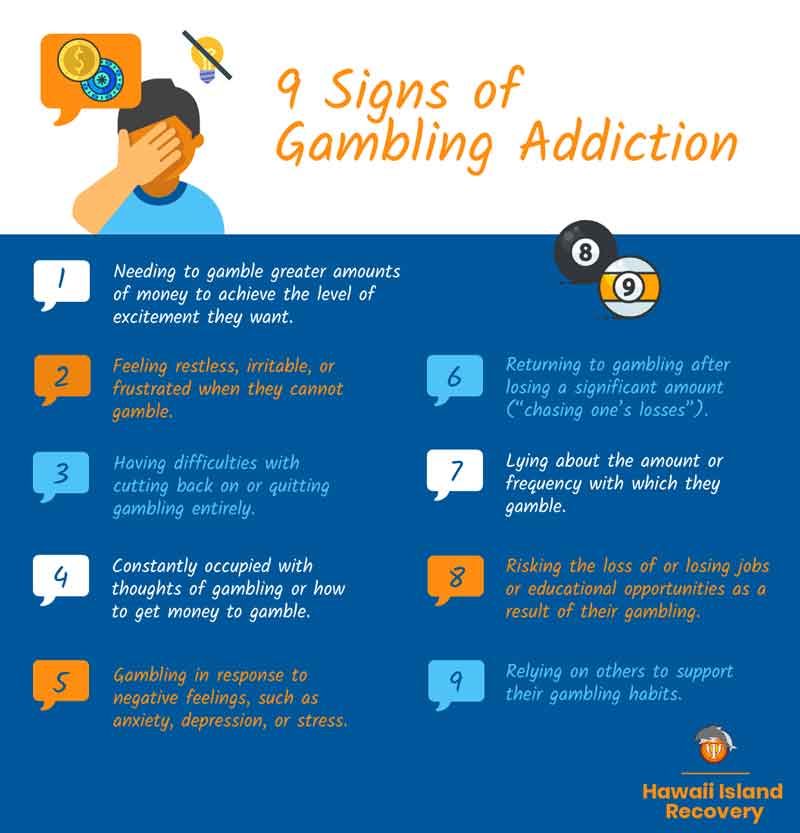With the rise of online gambling platforms and casinos, gambling addiction has become a growing concern in our society. It is important to recognize the signs of gambling addiction and seek help if you or someone you know is struggling with this issue.
What is Gambling Addiction?
Gambling addiction, also known as compulsive gambling or gambling disorder, is a mental health disorder characterized by the inability to resist the urge to gamble despite negative consequences. People with gambling addiction may experience financial problems, relationship issues, and emotional distress as a result of their gambling habits.
Signs of Gambling Addiction
It is important to be able to recognize the signs of gambling addiction in order to get help for yourself or a loved one. Some common signs of gambling addiction include:
Preoccupation with gambling
Failed attempts to cut back or stop gambling
Feeling restless or irritable when not gambling
Lying about gambling habits
Borrowing money to gamble
Jeopardizing relationships or job opportunities because of gambling
Getting Help for Gambling Addiction
If you or someone you know is struggling with gambling addiction, it is important to seek help as soon as possible. There are many resources available to help individuals overcome their addiction and regain control of their lives.
Therapy and Counseling
Therapy and counseling can be effective tools in treating gambling addiction. Cognitive-behavioral therapy (CBT) is a common approach that helps individuals identify and change negative thought patterns and behaviors related to gambling. Therapists can also help individuals develop coping strategies and skills to resist the urge to gamble.
Support Groups
Support groups, such as Gamblers Anonymous, provide a safe and supportive environment for individuals to share their experiences and receive encouragement from others who understand what they are going through. Support groups can offer a sense of community and connection, which can be essential in the recovery process.
Medication
In some cases, medication may be prescribed to help manage the symptoms of gambling addiction, such as depression or anxiety. It is important to consult with a healthcare provider to determine if medication is a suitable treatment option.
Preventing Gambling Addiction
Prevention is key when it comes to gambling addiction. It is important to set limits on gambling activities and to avoid risky situations that may trigger the urge to gamble. Some tips for preventing gambling addiction include:
Setting a budget for gambling activities
Avoiding gambling when feeling stressed or emotional
Seeking alternative forms of entertainment and relaxation
Talking to a therapist or counselor about gambling habits
Engaging in healthy activities, such as exercise and hobbies
Conclusion
Gambling addiction is a serious and complex issue that can have devastating consequences if left untreated. It is crucial to recognize the signs of gambling addiction and seek help from qualified professionals. Therapy, support groups, and medication can all be effective tools in the treatment of gambling addiction. By taking proactive steps to prevent gambling addiction and seeking help when needed, individuals can overcome their addiction and regain control of their lives.
Remember, it is never too late to seek help for gambling addiction. If you or someone you know is struggling with this issue, reach out to a mental health professional or support group for assistance.
